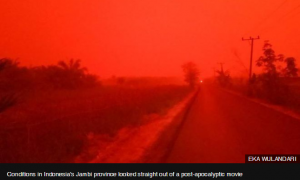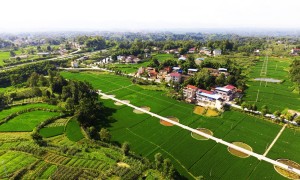The incident further raised safety concerns about the Mekong River, where 13 Chinese sailors were slaughtered in October.
The Chinese newspaper People's Daily reported that the group of Chinese ships was composed of three cargo vessels - Baoshou 8, Baoshou 9 and Yuanfeng - and an oil tanker previously named Renda 3.
The attack happened less than a month after international shipping resumed on the Mekong River and Chinese border police started patrolling the river together with their counterparts from Thailand, Laos and Myanmar.
Sources from the naval police in Thailand said the attackers had fired two rockets. One fell into the water while the other exploded near the ships.
The attacks occurred in the wee hours and the assailants' goal was unclear, making it difficult for the Myanmar patrol vessel to mount a counterattack, according to a press release from the Thai police.
There were no official reports of the attacks causing casualties or damage to the vessels.
On Oct 5, 13 Chinese sailors aboard two cargo ships were shot dead by a group of gunmen in a section of the Mekong River that forms parts of the borders of Thailand, Laos and Myanmar.
Thai police have said their country's servicemen were involved in the crime.
Patrols from the four countries had enabled international cargo shipping to pick up again on the Mekong River in the past three weeks.
From Dec 10, when the shipping resumed, to Jan 3, vessels transported 15,844 tons of cargo on the river. In the first 10 months of the year, an average of 24,280 tons were shipped on the river each month, said Fu Zhiming, Party secretary of the Lancang River Maritime Bureau. In China, the Mekong River is known as the Lancang River.
"about two thirds of the 86 freighters that are registered for international shipping on the river have returned to do business and so have many sailors," he said.
The industry's recovery came faster than expected, in part because the halt in river traffic let the demand for shipping build up for months. As a result, shipping charges have increased, he said.
Fu said restoring the transport industry on the river will require "personal safety to be guaranteed".
He said he doubts the Jan 4 attack will deal a big blow to the confidence of shipowners and sailors.
"The joint patrol on the river is more of a 'deterrent force', because it is not easy for patrols on the river to fight back," he said.
"If we cannot guarantee safety, the economic value of this waterway will be nothing."
Captain Feng Zhengliang, 35, who has worked on the Mekong River for 11 years, said he feels anxious doing his job even though armed police now escort cargo ships on the river.
"The recent rocket attack shows that there are many dangers on the Mekong River," he said. Statistics show more than 3 million tons of cargo have been transported on the Mekong River since 2001, generating more than 30 billion yuan ($4.8 billion) from imports and exports.







